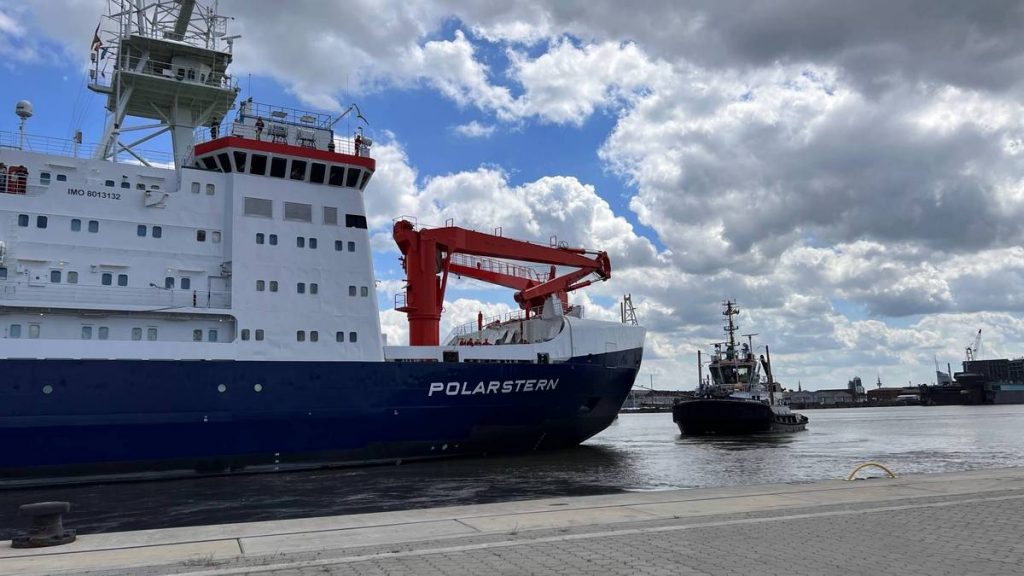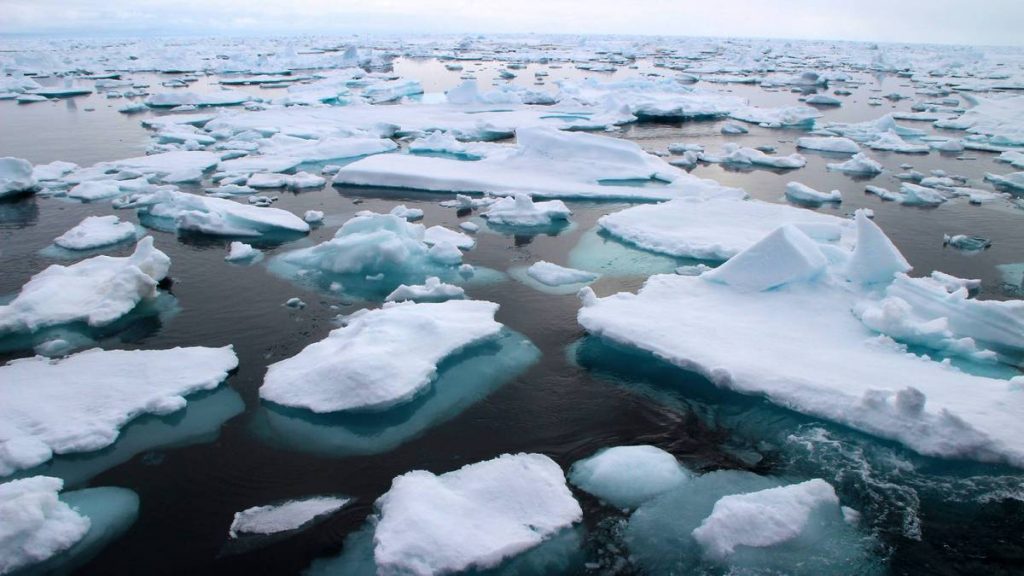German icebreaker leaves for Arctic ice research trip

German icebreaker Polarstern left for a seven-week research trip on Tuesday were scientists will focus on ice and glaciers.
June marks the beginning of annual sea-ice melt and one of the main areas researchers will examine is the marginal ice zone, the area between open water and sea ice edge, north of Svalbard.
“The team will also venture onto the ice to take a closer look at the thickness and characteristics of the sea ice and measure ocean currents and eddies away from the ship,” Torsten Kanzow, expedition leader and a physical oceanographer at the Alfred Wegener Institute, Helmholtz Centre for Polar and Marine Research, said in a news release.
“We’ll also deploy so-called gliders in the ocean, buoys on the ice and moorings on the seafloor, all of which will record valuable data for the next several years. Lastly, we’ll extend our research radius with helicopter flights, during which we’ll observe, for instance, the melt ponds on the ice.”

Their goal is to better understand how ice conditions, water layering and fluxes in heat influence melt and how climate change is impacting the Arctic.
Other projects include travelling to northeast Greenland to see how Atlantic water circulation is affecting glaciers in the region.
“We plan to install moorings in order to gauge the sensitivity of ocean-driven glacier melting to changing environmental conditions,” Kanzow said.
Click on the Follow-Polarstern link on the Alfred Wegener Institute website to follow the expedition in real time.
Write to Eilís Quinn at eilis.quinn(at)cbc.ca
Related stories from around the North:
Canada: “Our climate is changing before our eyes,” says WMO upon release of new report, Eye on the Arctic
Greenland: Researchers identify polar bear population that hunts off glacier ice, Eye on the Arctic
Iceland: Natural event seems to slow Icelandic glacier melt, Eye on the Arctic
Norway: Will the green transition be the new economic motor in the Arctic?, Eye on the Arctic
Sweden: Sweden’s climate policies closer to reaching goals, Radio Sweden
United States: Bering Sea ice at lowest extent in at least 5,500 years, study says, Alaska Public Media



